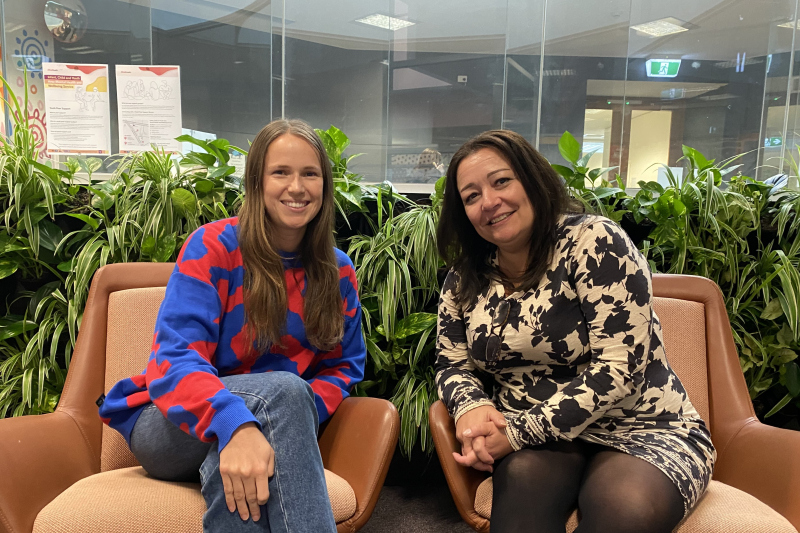New season of Extremely Human

After a successful first season, new episodes of Discovery College's podcast Extremely Human are being released.
Part of the Alfred’s Infant Child and Youth Area Mental Health and Wellbeing Service and headspace Early Psychosis, Extremely Human is just one of many resources on the Discovery College website that help us conceptualise and understand mental health.
The show is hosted by Lived Experience Specialist Lucy and Social Work Clinician Rachel, who sat down for a quick Q&A.
Extremely Human is now in it’s second season. Why do you think the first season resonated so strongly with listeners?
Listeners told us they loved hearing the real, honest stories that showed the human side of tough experiences, rather than seeing people as “cases”. People shared that the podcast felt thoughtful and hopeful, even when it explored topics that can be heavy. They also liked that it’s not overly edited or polished which made the conversations feel genuine.
For those who are yet to listen, can you give us a brief rundown of what Extremely Human is about, and what listeners can get out of it?
Extremely Human is a podcast where people share big life experiences, like psychosis, grief, addiction, euphoria, or moments that felt completely unreal. It’s not about labels or fixing people. It’s about listening to what those experiences were actually like, in their own words, without their stories being told for them, and hearing what they learned along the way. Listening to the pod can be a great option if you don’t have time to come to a discovery college course. You can listen anytime and at your own pace, whether it’s for personal growth, curiosity or professional development.
Can you give us a bit of background on yourselves as hosts? How did you come to work on the podcast and why are you passionate about the show’s themes/topics?
Rachel: I have been working in public mental health services for many years. I love my work, the people I meet, and those I work with. Over time though, I have felt troubled by how pathologising our society's responses can be to those experiencing mental health distress and difficult life circumstances. I have been trying to find ways in my own practice and in the contexts that I work in to meet people differently. The Extremely Human podcast is an opportunity to learn from others, hear different perspectives and to sometimes challenge the status quo. Ultimately, the podcast elevates voices that have been silenced or difficult to hear and through doing that it humanises those experiencing distress and mental health difficulties. It is such a privilege to be in these conversations with Lucy and our podcast guests.
Lucy: When I was working as a peer worker, I heard from many young people about the dehumanising experiences they'd been through. I wanted to create a space where their voices could be heard and where we could have conversations about how we can care for each other better.
What can people expect in this new season of Extremely Human?
Lucy: In season two, we’re still having real, honest conversations with incredible people. We’ve made a few tweaks based on listener feedback like shortening the intro so we can dive straight into the episode and we’ve added a bit more structure while keeping the same conversational style. Right now, we’re also working on new opening and closing questions to keep things fresh. I think the podcast will be ever evolving.
Where can people listen to Extremely Human, and how often are the episodes coming out?
You can listen to Extremely Human on Apple podcasts, Spotify, Goodpods, Castro, Pocketcasts and the discovery.college website. We hope to have an episode out every month.


_500_333.jpg)